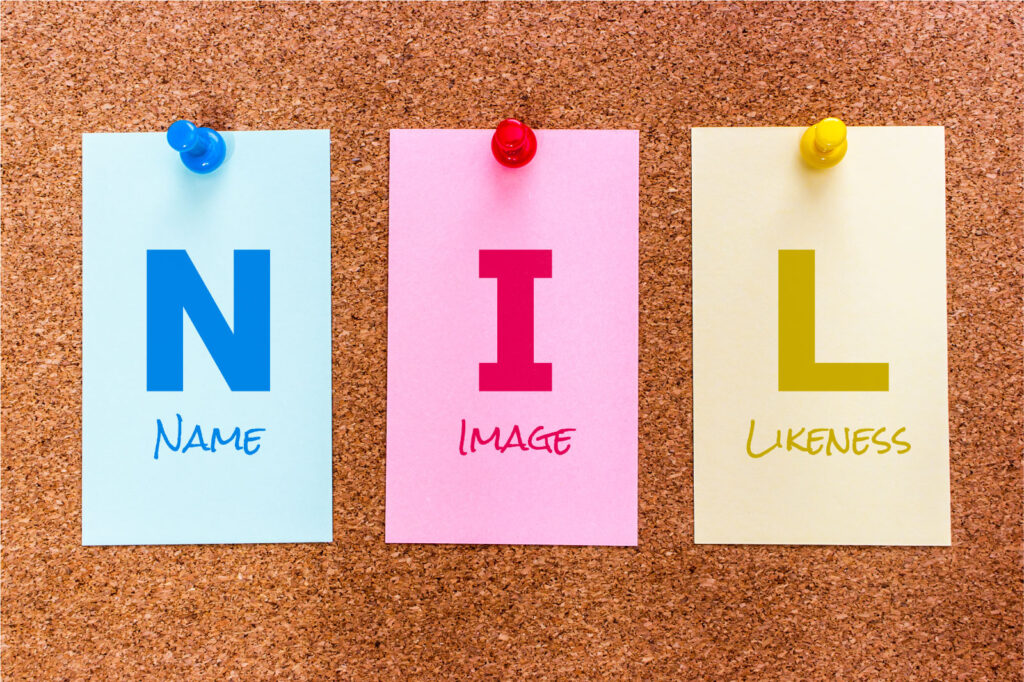Name, image, and likeness (NIL) refers to the right of an individual to control the commercial use of their name, image, and other personal attributes. This includes the right to allow or prohibit others from using their name or image in advertising, endorsements, or other commercial ventures.
Monetizing one’s name, image, and likeness (NIL) refers to the practice of earning revenue or other benefits from the commercial use of one’s identity. In recent years, this has become a hot topic in the world of sports and entertainment, as athletes, celebrities, and other public figures seek to capitalize on their personal brands.
Here are some ways that one can monetize their NIL:
Endorsement deals: One of the most common ways to monetize NIL is through endorsement deals. This involves partnering with a brand or company to promote their products or services in exchange for payment.
Merchandising: Another way to monetize NIL is through the sale of merchandise such as apparel, accessories, and other products featuring one’s name or image.
Social media: Social media has become a powerful tool for monetizing NIL, as influencers and other public figures can earn revenue through sponsored posts, affiliate marketing, and other forms of online advertising.
Personal appearances: Public figures and Influencers can also earn revenue by making personal appearances at events or by participating in speaking engagements.
Gamers mastering live-streaming can reach the influence stage. Growing followers and unique offerings on popular streams such as Twitch can lead to licensing agreements, TV and movie appearances, and other forms of media.
Although NCAA athletes have attracted recent headlines with the commercial exploitation of NIL, Influencers have more expansive opportunities. The most obvious example is the global opportunities is Venezuela’s Lele Pons. She has created significant commercial activities through her intense use of YouTube. She has several marketing deals that are derivative of the unique programing that attracts so many followers.
There are several legal ways to protect one’s name, image, and likeness (NIL). Here are some of the most common methods:
Trademarks: Registering a trademark can help protect a person’s name, logo, or other identifying symbols or words that are associated with their personal brand.
Copyrights: Copyright law protects creative works, such as photographs, videos, and written content, which are created by an individual.
Right of Publicity: The Right of Publicity is a legal concept that gives individuals the right to control the commercial use of their name, image, and likeness. This allows individuals to prevent others from using their identity for commercial purposes without permission.
Contracts: Contracts can be used to protect a person’s NIL by specifying the terms of any commercial use, such as endorsement deals, merchandising agreements, or licensing agreements.
Privacy laws: In some cases, privacy laws can be used to protect a person’s NIL, particularly in cases where their identity is being used without their consent.
Protection of NIL varies by jurisdiction across the globe. A good IP lawyer can help you navigate the best means to protect and commercialize your NIL.


